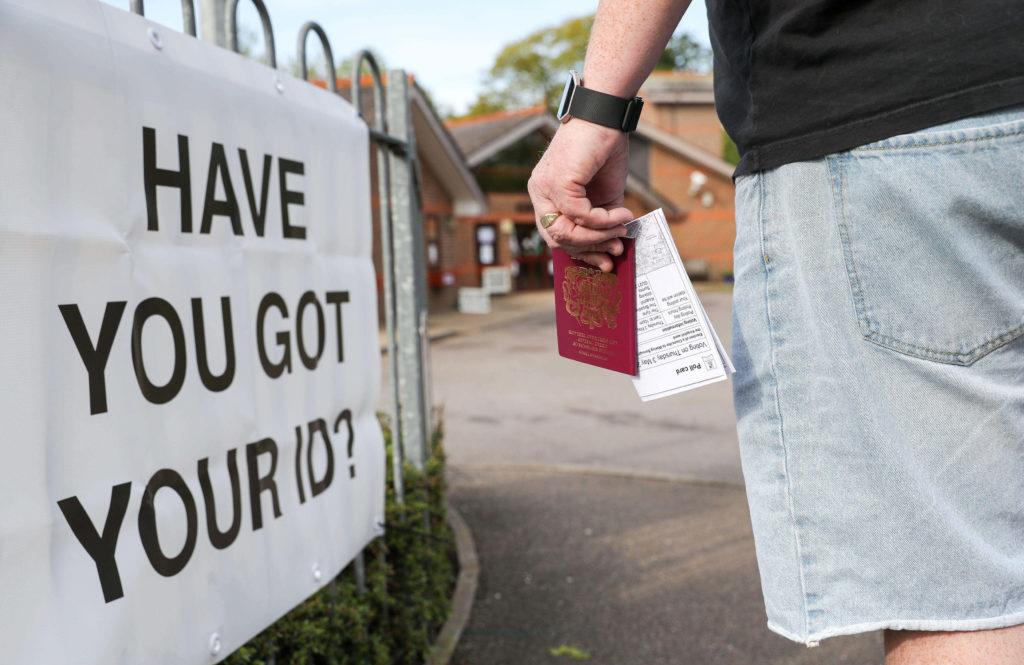On Rishi Sunak’s first day as prime minister he staked his premiership on a bold pledge that he would lead a government of “integrity, professionalism and accountability at every level”. It was a clear repudiation of Boris Johnson and his predecessor-but-one’s lax standards regime. When it came to probity, Sunak dared to be different.
But since becoming prime minister in October, Sunak’s commitment on governing ethics has been tested repeatedly. By way of a short summary: in six months, Sunak has lost two cabinet members, including his deputy PM, to bullying scandals; been accused of dithering in response to Nadhim Zahawi’s tax affairs; and been investigated himself over whether he failed to declare an interest regarding his wife’s finances.
And Sunak’s commitment to “integrity, professionalism and accountability” looks set to be tested once more in the fallout of the government’s voter ID rollout.
Of course, ministers say the voter ID policy is, in fact, about boosting the “integrity” of the UK’s election system and ensuring voters pretending to be someone else are hounded out of polling stations across the country.


But data collected by the Electoral Commission show that only seven allegations of attempted impersonation in polling stations in 2022, with just one incident of in-person voter fraud initiating court proceedings across all UK elections last year. In all, there have been only three convictions of voter impersonation in the past seven years.
While Voter ID is already commonplace in Canada, Italy, Norway, Israel, Hungary and even Northern Ireland, that the rollout in England has occurred so suddenly — despite a warning from the Electoral Commission to postpone the policy last year — has reinforced a feeling of moral outrage over the government’s motives.
Critics have likened the government’s enthusiasm for photo ID to voter suppression by Republican lawmakers in the United States, arguing that the changes could reduce turnout, discourage young people from voting and disenfranchise some minority voters who are less likely to have a passport or driver’s license.
Estimates of those voters without eligible ID range from 925,000 to 2 million. And despite the government offering a free “voter authority certificate” to people applying online, only 89,502 had done so by last week’s deadline.
In the end, the main test of the new measures will be how many voters are turned away across the country for lack of ID and do not return. And under the provisions of the Elections Act and the Voter Identification Regulations 2022, polling station staff today are required to collect data on the people that cannot be issued a ballot paper because they were unable to provide an accepted form of ID.
Voter ID accountability?
However, it emerged in an urgent question in the House of Commons last week, brought forward by Labour MP Clive Betts, that “greeters” being deployed outside polling stations to remind people of the new rules will not note how many people leave without ever going inside. It means some of those turned away without voter ID may not make it to the polling station desk — which is, legally, the only place the data can be recorded.
The revelation came from Betts himself, by way of a point of order, having been contacted by the Electoral Commission while the urgent question was taking place.
Betts has since detailed: “The Electoral Commission has confirmed that we simply won’t know how many people will have been turned away in a queue outside a polling station because they do not have the requisite ID. It appears that the Government has designed a system which denies the prospect of sensible and co-ordinated information collection and makes it almost impossible to judge the true impact of the introduction of voter ID”.
So even if today’s elections pass without any obvious issues, questions may still hang over the policy and whether some denied would-be voters may have slipped through the data-collection net.
And this is the crux of the issue. The prime minister promised “integrity, professionalism and accountability at every level” upon taking office, but the potential lack of accurate data on the impact of voter ID could thwart attempts at scrutiny on this key issue in the long run.












